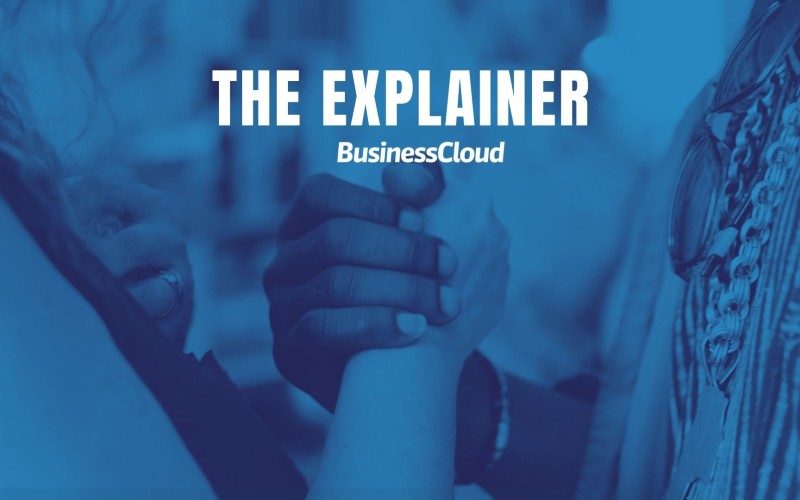With UK job vacancies currently at a record high, UK businesses are faced with an exciting opportunity for businesses to begin attracting and retaining the brightest and best talent in the country.
However, this surge in job demand also raises questions about how UK companies can ensure they attract and retain the right employees – in a way that is truly diverse and inclusive.
Not only is this the right thing for businesses to do, and part of every business’ corporate social responsibility, but Tech Nation’s Diversity and Inclusion Report shows that it pays to be a diverse and inclusive tech company. Boards with gender diversity have a £70,000 turnover premium and there is 453% higher investment for directors sitting on internationally diverse boards.
There are a huge number of tech startups and scaleups springing up across the UK to help businesses build a more diverse workforce, make their recruitment processes more inclusive, retain star hires, tackle unconscious bias in their job advertising and help to close wage gaps.
Why is flexible working key?
That Works For Me are this year’s winners of Tech Nation’s ‘Rising Stars’ Diversity & Inclusion competition for innovative, early-stage companies – and they’re scaling rapidly. Founded by three female founders – Jessica Heagren, Nicola Good and Gemma Blake – That Works For Me is a digital platform that allows businesses to access thousands of experienced professionals, ranging from social media managers to lawyers – all looking to work flexibly, remotely and outside of the 9 to 5.
As the future of work looks more and more to embrace flexible and hybrid working models, it’s important for companies to be open to employees’ different working routines, external responsibilities and lifestyles as they hire for new roles.
Understanding unconscious bias
It’s also important for businesses to address diversity and inclusion from the very beginning of the recruitment process – from the moment they first publish a job advertisement.
One of the key problems that tech companies are aiming to address is the issue of ‘unconscious bias’ creeping into the way jobs are advertised, who is choosing to apply for each role, and the language both employers and candidates use to talk about themselves.
The winner of last year’s Tech Nation ‘Rising Stars’ Diversity & Inclusion competition for innovative, early-stage UK tech companies was Know You More, who are trying to solve the problem of bias and poor candidate experience in recruitment. Know You More’s apps capture applicants’ natural responses and behavioural preferences, so there is no room for self-report bias to creep in where someone may attempt to skew their answers to appear “more desirable”.
Once candidates have completed the assessment, they receive a report outlining their natural behavioural strengths and areas of development – even if they were unsuccessful at reaching the next stage of the process. This is a way of giving something back to each candidate who has invested the time applying for the job and completing the assessment.
Manchester-based tech scaleup Jobseekrs is another careers platform that mitigates unconscious bias at the sourcing and screening stage of recruitment. The Jobseekrs algorithm matches a candidate to a potential employer based on skill set and culture alignment, producing an overall percentage fit score which is presented to the employer anonymously. The employer can then purchase credits to reveal and engage with candidates.
Role Mapper, based in Exeter, is another AI company which believes that how jobs are designed and job descriptions are created is critical to attracting and retaining talent, but that the process for designing jobs is broken, manual and disconnected. RoleMapper has built an algorithm that helps organisations to design and manage jobs truly objectively, and create great job descriptions that increase hiring diversity and workforce flexibility.
Psychometric recruitment scaleup Arctic Shores was also born out of a desire to make the recruitment process more engaging, objective and fair. The Manchester-based scaleup uses data-driven psychometric tests combining neuroscience, AI and game technology to eliminate bias when it comes to hiring and promoting employees.
Iungo Solutions is another tech scaleup, based in Cardiff, which also promotes a rigorous approach to recruitment and selection based on externally validated assessment models to remove bias in the selection processes, and Valla is a data platform working to do the same for the legal industry.
Valla helps legal companies consider where and how to target under-represented groups, the language of job adverts, and the flexibility that can be offered and the transparency around pay. The company is also using the data they gather on their platform around discrimination in the workplace to raise awareness about the employment issues that under-represented groups face.
How to retain your star employees
When it comes to creating diverse and inclusive HR processes, recruiting the right employee is only the first hurdle. It is equally – if not more – important to ensure you are retaining the right employees and encouraging employee advocacy through building a truly inclusive, supportive and positive workplace culture where employees are encouraged to learn new skills, grow with the company, and be their best selves at work.
People Matter is one prime example of a fast-growing tech scaleup helping businesses retain talent through supporting positive mental wellbeing in the workplace; helping to beat employee burnout, improve resilience and foster positive workplace cultures.
It’s not just early and mid-stage tech scaleups that are revolutionising the way businesses attract, retain and nurture their talent. Late-stage tech scaleup Beamery recently joined Tech Nation’s prestigious Future Fifty programme; the longest-running accelerator for innovative late-stage tech companies. Beamery has developed a Talent Operating System that allows enterprises to attract, engage, and retain top talent through personalised upskilling and reskilling processes, and to manage the entire talent journey on one unified platform.
Beamery has also recently surveyed over 400 organisations to discover how they’re facing their diversity challenges, and overcoming barriers to more impactful programs and initiatives, all published in The State of Diversity, Equity & Inclusion Report.
Closing the gender wage gap
Last but definitely not least, tech companies are helping businesses across the UK address the decades-old problem of the gender wage gap.
One tech business focussed on countering this problem is Gapsquare, which provides companies with intuitive insights for achieving equal pay and embracing diverse talent ecosystems. Gapsquare enables companies worldwide to track pay disparity, pay equality and pay gap data instantly and sustainably, building fairer workplaces and simpler processes around fair pay.
Gapsquare offers AI insights around building an inclusive workplace, and about how to move pay gap and equality analytics in-house and within the control of the company.


